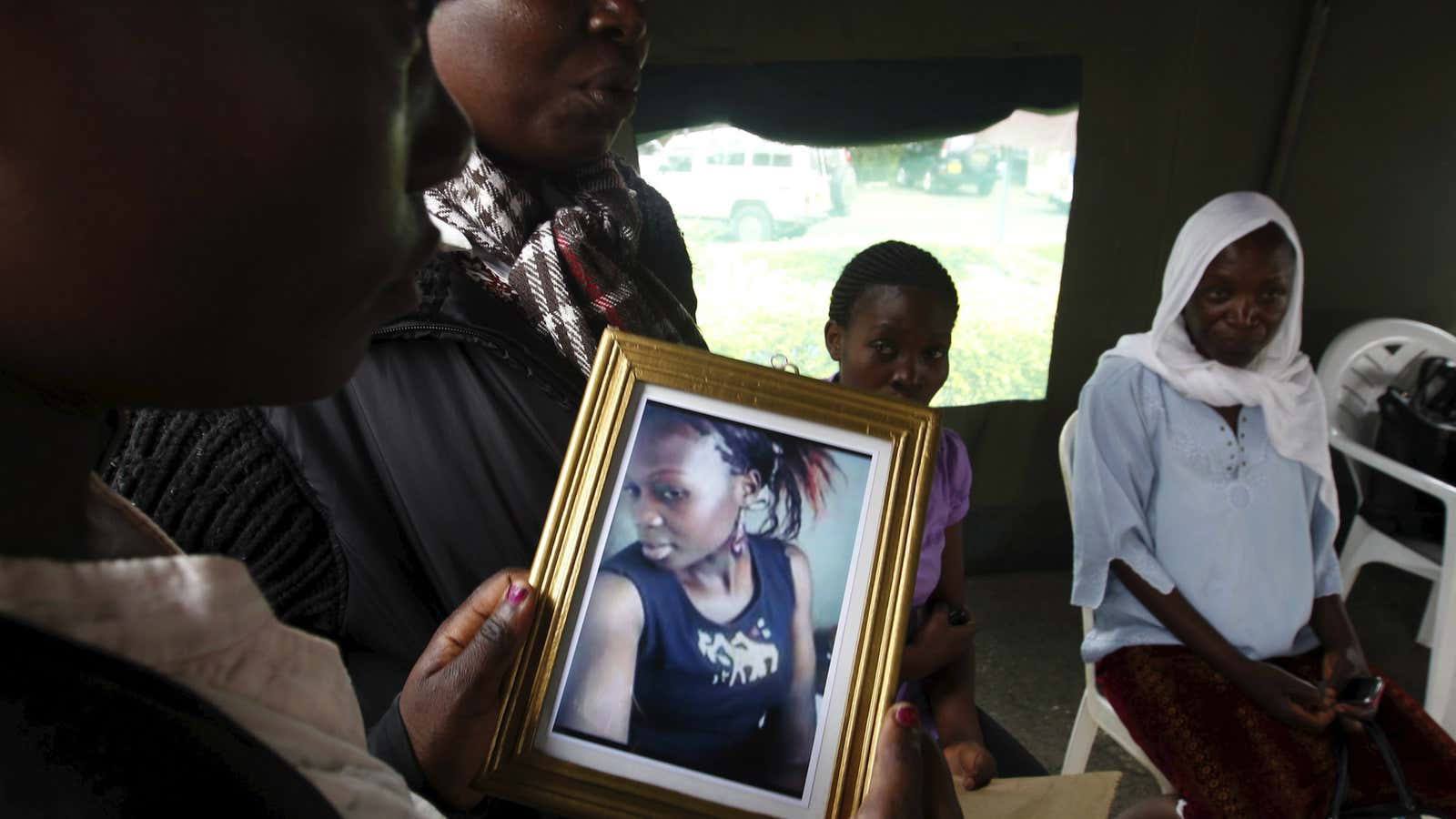As details about multiple attacks on Paris last week emerged, news about another attack began to circulate—147 students at a university in northeast Kenya, massacred by al-Shabaab militants while police took hours to get to the scene.
Online people began pledging to pray for Kenya, as well as Paris. A BBC report on the attack made the rounds on social media. “Thursday, 147 dead in terrorist attack on Kenya college. Friday, 120 dead in terrorist attacks around Paris. Hate consumes and destroys,” read one Tweet.
Except that the attack in Kenya, in a county called Garissa, happened over seven months ago on April 2. It’s unclear how the story, the most read on BBC’s website on Sunday (Oct 15), began circulating again. Within two days, over 10 million people had clicked on the story, almost four times as many did when the attack actually happened, according to the BBC.
It’s evidence of how little attention was paid to the attack in the first place, another example of how little attention is paid to attacks that happen outside of the West, or selective outrage as some have called it. Readers assumed the story was new because it was the first time they had heard of it. About half of readers were from North America while another quarter was from the United Kingdom. Most of the traffic came from social media.
Aside from Kenya, commentators have asked why international media was not as attentive to a recent double suicide attack in Beirut that killed over 40 people, or an ambush in Baga, Nigeria in January that supposedly left up to 2,000 dead. Others are asking why Facebook did not roll out the safety check function during those crises. (Facebook has since said it would broaden use of the safety check.)
The fact that attention is now turning to these attacks is also proof of how those from overlooked regions are more easily influencing global conversations. Elie Faires, a doctor in Lebanon, wrote in a widely shared blog post, ”When my people died, they did not send the world in mourning. Their death was but an irrelevant fleck along the international news cycle, something that happens in those parts of the world.”
A man by the name Jafaar Jafaar in Kano, Nigeria wrote a letter on Facebook to Mark Zuckerburg asking why the deaths in Baga “never never melted your company’s heart to create an instant theme for your 1 billion consumers to identify with Nigeria.” His note, which included a flag of Nigeria, was shared over 3,000 times.
And not everyone failed to pay attention to the attack in Kenya. In April, Parisians held a vigil where they read out the names of those who died and held signs that said, “Je suis Kenyan. What about you?”
